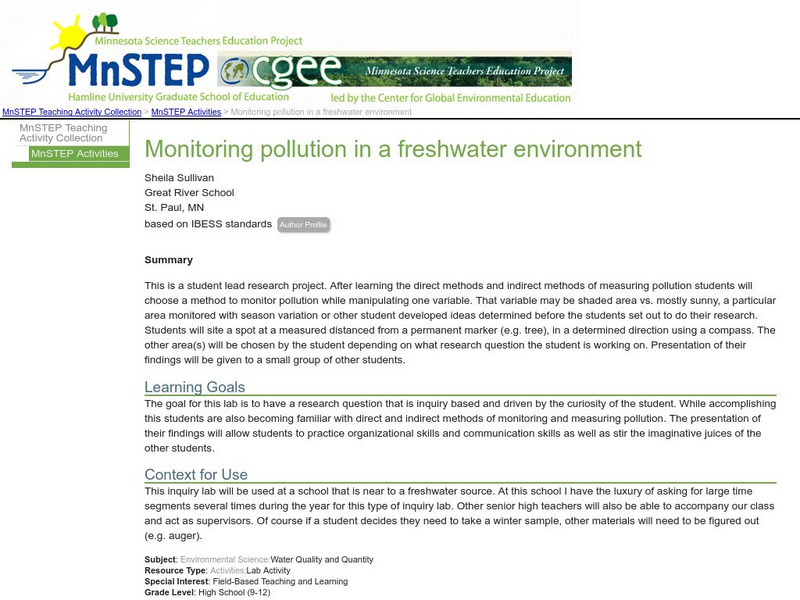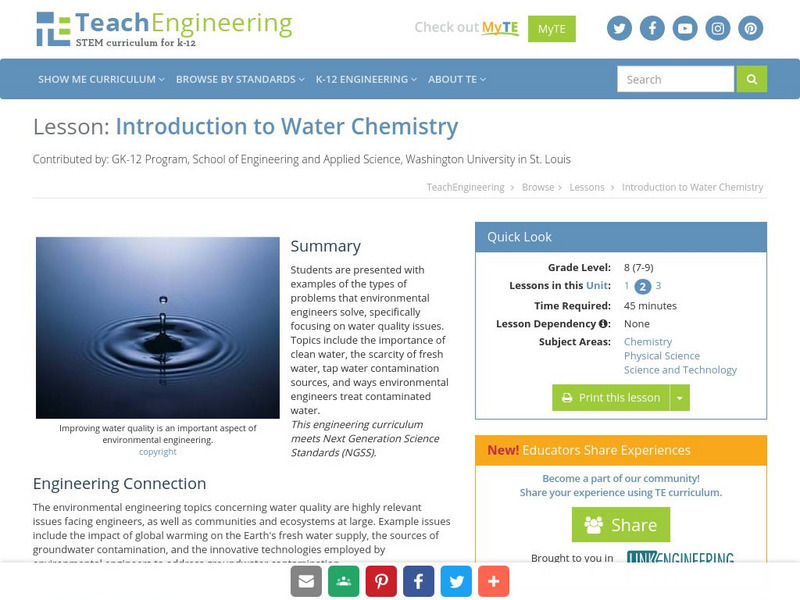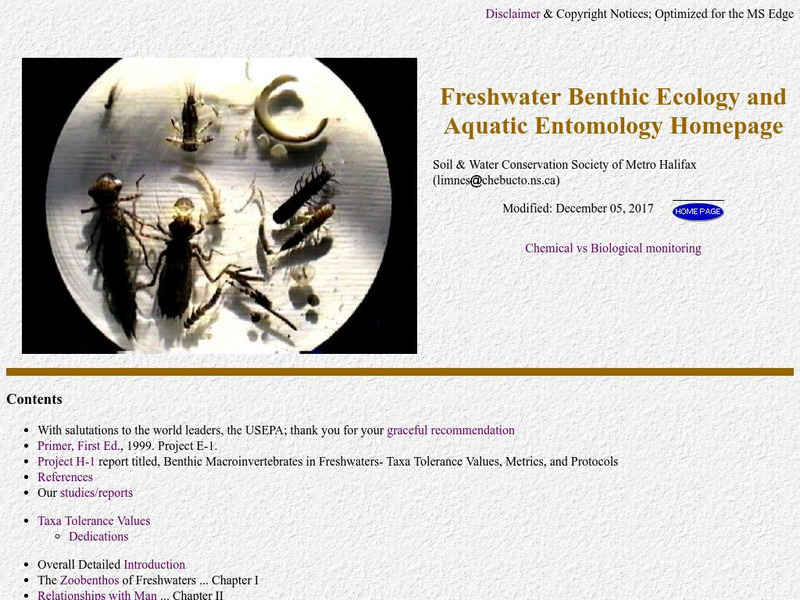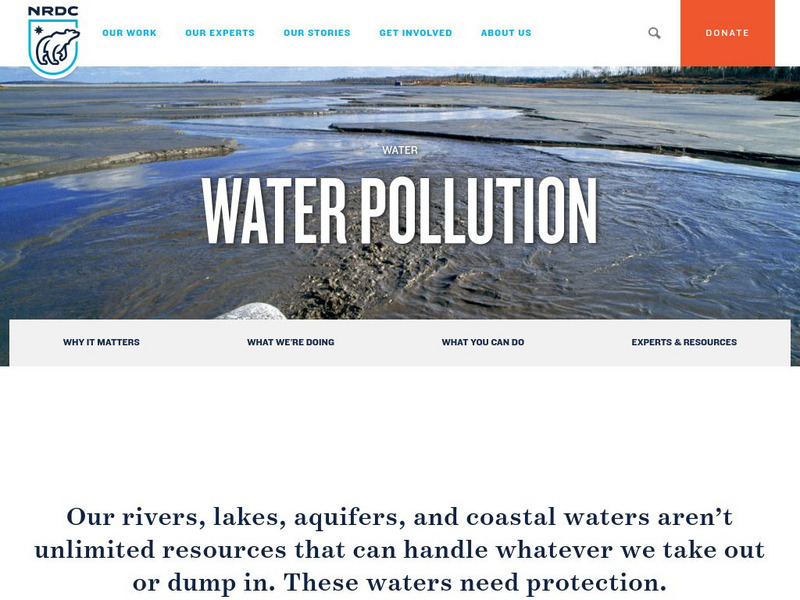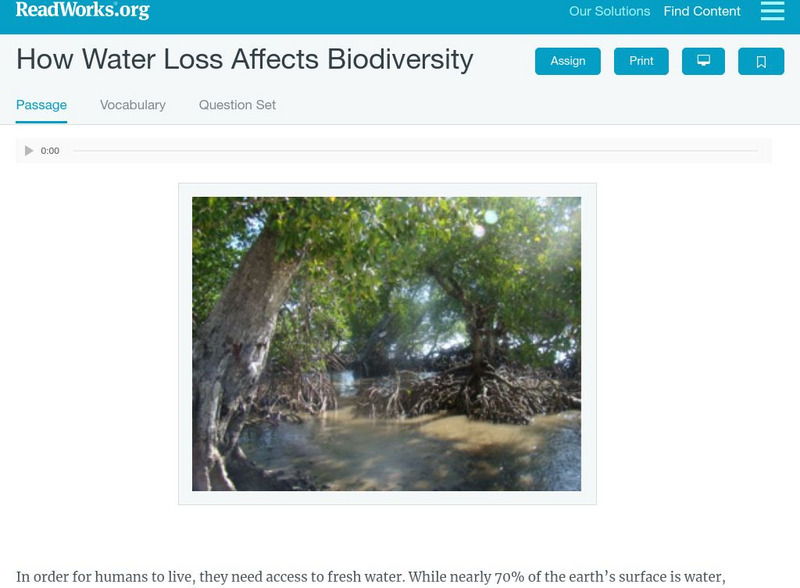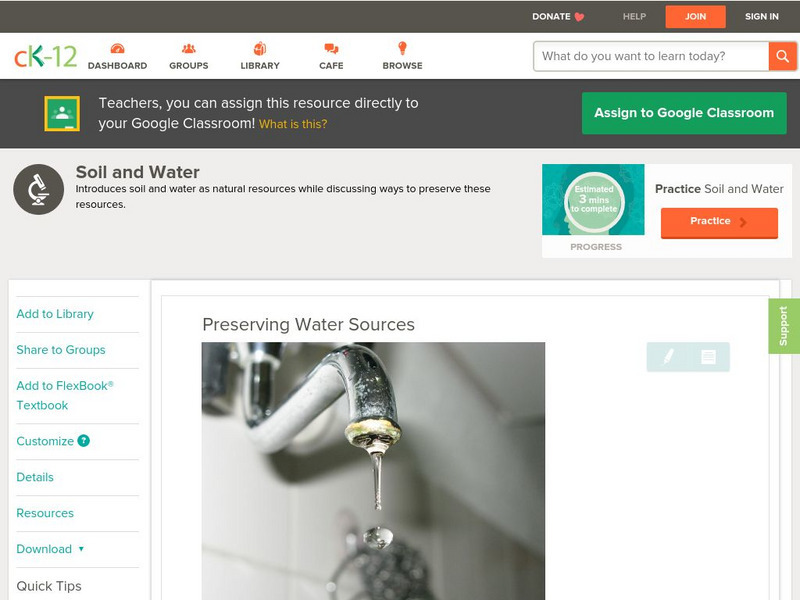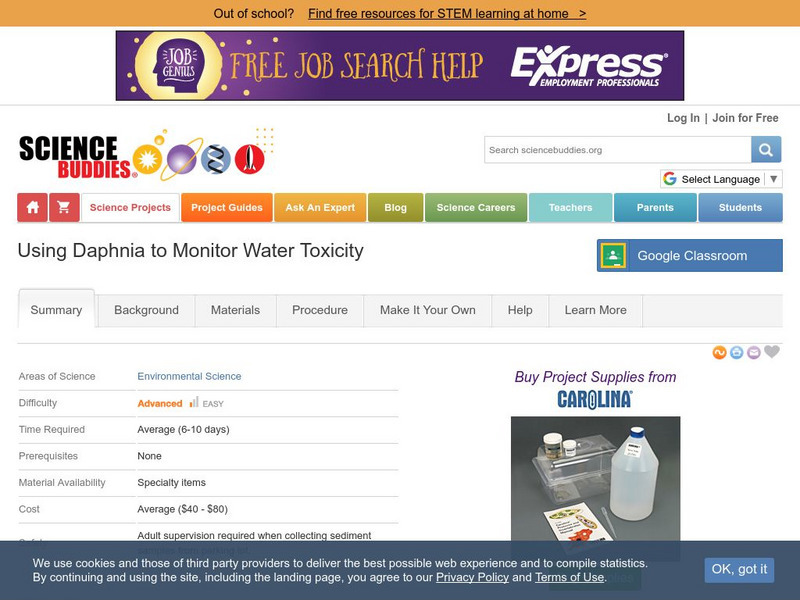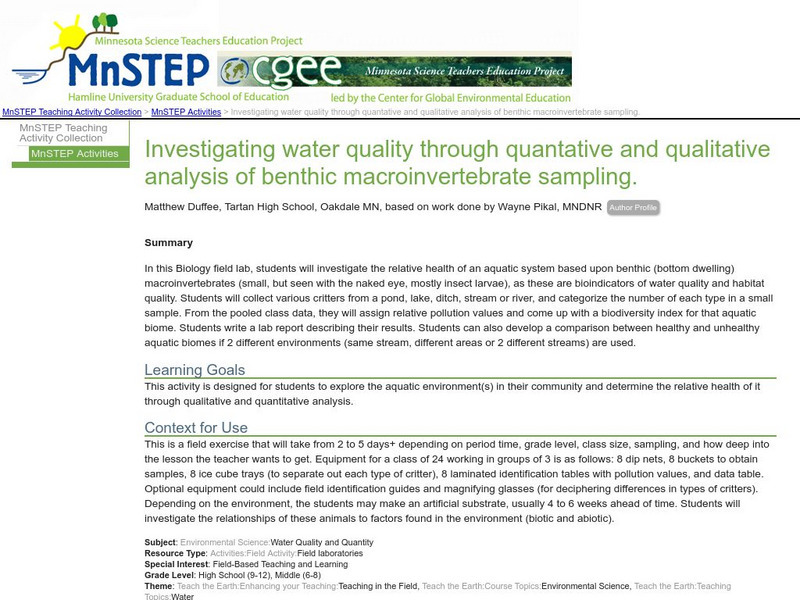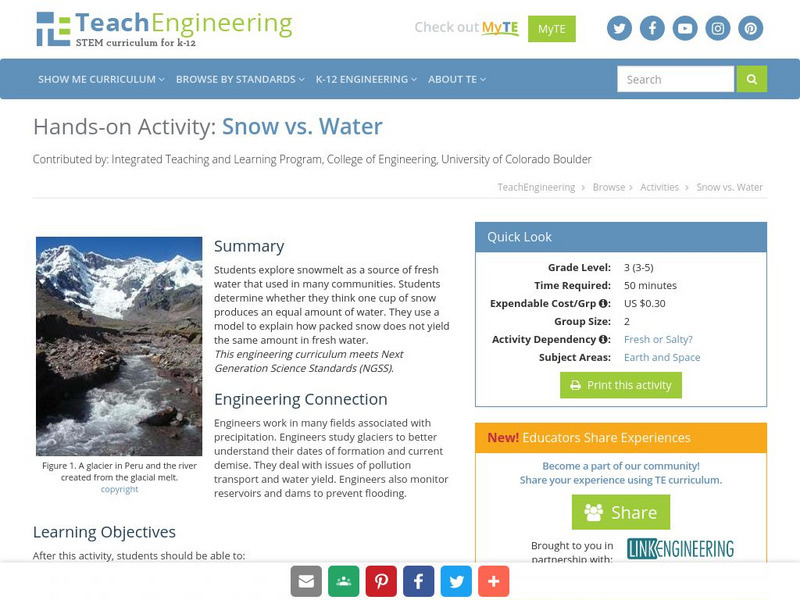Curated OER
Testing the Waters
Students study the quality of water by running chemical tests on the water. First, they measure pH, temperature, phospates, and nitrates in tap (drinking) water and an outdoor water sample. Then they post and evaluate the results of...
Curated OER
Great River Bend Adventure
Young scholars use their imagination. They discuss the 4 C's of teamwork: Concentration, Communications, Coomperation, and Consideration. Students discuss the safety guidelines of the project. They complete a rope maze. The group walks...
Curated OER
Not a Drop to Drink
Students explore potential issues of a water shortage. In this water conservation instructional activity, students brainstorm the many uses of water and what life would be like if there was not enough water available.
Idaho State University
Idaho State University: Water Pollution
Explore water pollution in surface water and groundwater and investigate the treatments for both. Also, check out what happens when salt water infiltrates the fresh water sources.
NOAA
Noaa: Freshwater
This site is designed to assist the educator in teaching concepts and processes related to freshwater environments and to increase stewardship of these important resources. There are links to resources regarding the Great Lakes...
Science Education Resource Center at Carleton College
Serc: Monitoring Pollution in a Freshwater Environment
During this research project, students will choose either the direct method or the indirect method to monitor and measure pollution while manipulating one variable. They will develop a research question to work on and present their...
HotChalk
Hot Chalk: Lesson Plans Page: Aquatic Wildlife and Pollution
This lesson plan is designed to teach young children about healthy and hazardous marine and freshwater environments and be able to describe the effects of the pollution of plastics on wildlife.
TeachEngineering
Teach Engineering: Introduction to Water Chemistry
Learners are presented with examples of the types of problems that environmental engineers solve, specifically focusing on water quality issues. Topics include the importance of clean water, the scarcity of fresh water, tap water...
Other
Freshwater Ecology
This is a comprehensive and detailed site providing information on aquatic macroinvertebrates. The emphasis is on biomonitoring of water quality through quantitative assessment of numbers and types of small aquatic organisms.
Other
Nrdc: Clean Water and Oceans
What prompted congress to pass the Clean Water Act? Has this legislation been successful? The Natural Resources Defense Council offers information on fresh and ocean waters, pollution control, conservation, and more.
Other
Alberta Riparian Habitat Management: Protecting Shorelines & Streambanks [Pdf]
Protecting Shorelines & Streambanks - Naturally explains the critical importance of healthy shorelines for preventing soil erosion and filtering out pollutants. It looks specifically at riparian areas, such as those in Alberta, which...
Read Works
Read Works: How Water Loss Affects Biodiversity
[Free Registration/Login Required] Students read about how varying amounts of fresh water can affect biodiversity in a region. A question sheet is available to help students build skills in reading comprehension.
CK-12 Foundation
Ck 12: Life Science: Preserving Water Sources
[Free Registration/Login may be required to access all resource tools.] It might seem like there is plenty of water on Earth, but that's not really the case. Water is a limited resource. That means that it is used faster than it is...
Science Education Resource Center at Carleton College
Serc: Investigating Aquatic Ecosystems: Macroinvertebrates and Water Quality
Students will investigate three aquatic ecosystems (pond, stream, bog) to determine the relative pollution index and the water quality of each ecosystem. They will collect and analyze the benthic organisms found in each system and...
National Institutes of Health
National Institute of Environmental Health Sciences: Let's Talk About Water
Discover why water is so important, especially clean water. Find out where water comes from and how we can make it safe to drink and free from pollution.
Science Buddies
Science Buddies: Using Daphnia to Monitor Water Toxicity
In a bioassay, a living organism serves as a detector for toxins-the same way canaries were used in coal mines to detect invisible toxic gases. In this project, water fleas (Daphnia magna), a freshwater crustacean, are used in a bioassay...
Science Education Resource Center at Carleton College
Serc: Investigating Water Quality Through Quantative and Qualitative Analysis
By looking at the bottom dwelling macroinvertebrates, students will investigate water quality and habitat quality in this field lab. Students will record the number of creatures found at the bottom of a pond, lake, ditch, stream or river...
US Geological Survey
U.s. Department of Interior: Lake Pontchartrain Basin Lessons
An entire unit regarding the wetlands of the Lake Pontchartrain Basin. Students can find comparisons or relationships between elevation, vegetation, soils, geologic formations, rainfall, pollution, public land use, coastal wetlands,...
TeachEngineering
Teach Engineering: Snow vs. Water
Engineers work in many fields associated with precipitation. Engineers study glaciers to better understand their dates of formation and current demise. They deal with issues of pollution transport and water yield, and they monitor...
Geography 4 kids
Geography4 kids.com: Where Is Groundwater?
Critical source of freshwater and most abundant, yet also the most polluted is groundwater. Discover how scientists work to purify this important resource to make it useable.
Center for Innovation in Engineering and Science Education, Stevens Institute of Technology
Ciese Collaborative Projects: The Global Water Sampling Project
By testing your local water quality, you will be able to compare your results with students around the world. Register your class, and follow the project instructions. Additional teacher resources, references, and Ask-an-Expert sources...
Food and Agricultural Organization of the United Nations
Fao: Discovering Water Re Use
In some part of the world there is not enough fresh water for every use. If things are done differently water re-use can be very effective. Learn here about ways we can change the world. Wastewater, if properly treated can be a resource...
NOAA
Noaa: It All Runs Down Hill [Pdf]
Read how freshwater moving across the surface of the Earth can become polluted and bad for the environment. Create a model that shows how water can become polluted as it flows downhill.
PBS
Pbs Learning Media: Environmental Public Health: Human Impact on Water Quality
In this lesson, students explore human impact on water resources, investigate the quality of their community's water supply, and consider ways to clean up and avoid further pollution. (Note: Some of the links may no longer work and...







